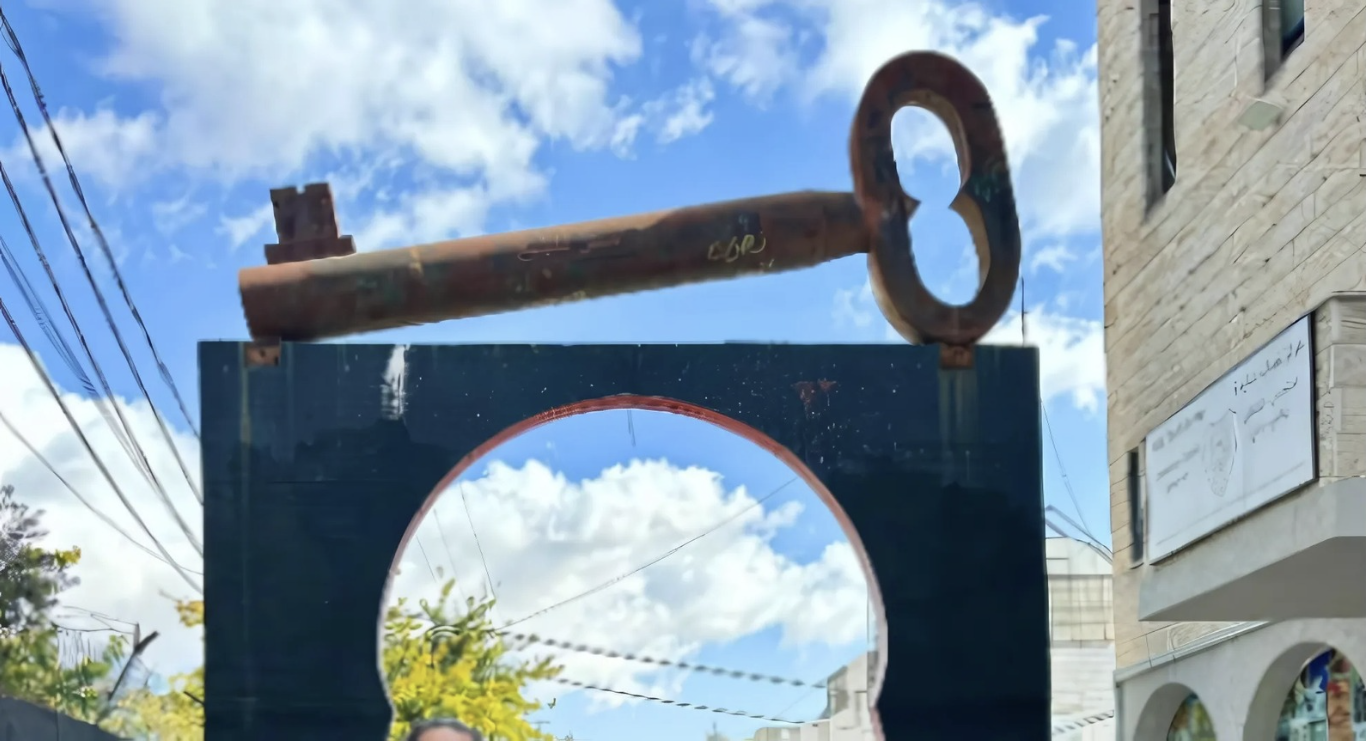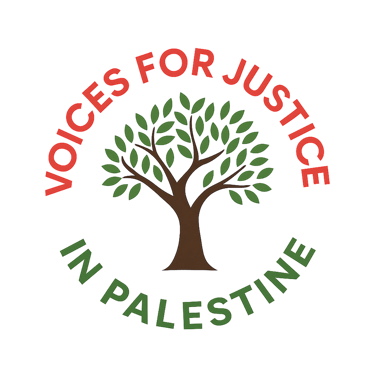Growing Despair, Frustration, and Fear Among our Palestinian Partners. However, Sumud Lives On
On his recent visit to Palestine, Rev. Dr. Ron Shive shares powerful testimonies from partners in East Jerusalem and the West Bank, where fear and despair run deep — but so does sumud, the Palestinian spirit of steadfast perseverance. From family tragedies in Gaza to acts of creative resistance in Aida Refugee Camp, this reflection captures the heartbreak and resilience of a people under siege, and the urgent call for solidarity.
Rev. Dr. Ron Shive
12/13/20244 min read


On my most recent trip to meet with our Palestinian partners in East Jerusalem and the West Bank, I heard more dire remarks from our partners than ever before about the fear, anxiety, and despair that grips them on a daily basis. Nonetheless, everyone gave witness to “sumud.” “Steadfastness” or “Steadfast Perseverance.”
I arrived in Amman, Jordan on Wednesday, November 6, to co-lead a Churches for Middle East Peace group on a ten-day trip to Jerusalem and Bethlehem and climaxed in Jericho with the three-day And Still We Rise Summit.
Churches for Middle East Peace is a broad coalition of thirty-five faith communities that works in conjunction with interfaith and secular communities striving for justice and peace in the Middle East. Our priorities are to educate, elevate, and activate. We meet regularly with the White House, Senators, Representatives, the State Department, and Heads of State to work for security, justice, and equality in Israel, Palestine, and the broader Middle East.
There are two encounters during our trip that stand out most:
Shireen Awwad Hilal has become a friend during my three trips to Palestine this year. She is the Dean of Students at Bethlehem Bible College and director of the college’s community outreach. I learned on this trip that she is a graduate from Texas A&M University with a MA Degree in Educational Administration. Shireen is a woman of great intellect, vision, and compassion. Sadly, the last year has brought much tragedy to her and her family.
Listen to her story,
In our culture in Palestine, visits to family are a part of life. We also share in celebrations such as weddings and baptisms, as well as coming together to say farewell to loved ones when they die.
My aunt Elaine and my uncle Fraig were both killed in Gaza during the early days of the present war. They were sheltering in the Holy Family Parish Church when it was shelled. My aunt was killed at that time, and my uncle later, due to lack of treatment.
It has been [a] year since we lost both of these dear family members. It is hard to say goodbye to someone whom you have not seen for many years. The occupation did not allow us into Gaza for many years before the war. Now in the war, we lost them, and we were not even able to attend their funeral to say goodbye. Our hearts are broken. This is especially so for my mom, who lost both her sister and her brother. May the Lord have mercy.
How shall I remember them?
Shireen was one the members of the Leadership Team for CMEP’s Still We Rise Summit in Jericho. The theme for that conference was based on Maya Angelou’s Poem, “Still We Rise,” which begins:
You may write me down in history
With your bitter, twisted lies,
You may trod me in the very dirt
But still, like dust, I'll rise.
Aida Refugee Camp and the Alworrad Cultural and Art Center – On the second and third day of the ASWP Summit in Jericho, I led two days of fellowship with Palestinians in the West Bank at the Aida Refugee Camp and the Bedouin community at the Nabi Musa Mosque. While both experiences were profoundly impactful, in this brief report, I will reflect on the first.
The Aida Refugee Camp is one of 58 official refugee camps across Jordan, Lebanon, Syria, the West Bank, and the Gaza Strip that are supported by the United Nations Relief Work Agency (UNRWA). There are 19 camps in the West Bank. Aida Camp is located near the main checkpoint that connects Bethlehem and Jerusalem. It is home to over 6,200 Palestinian refugees from many villages from both 1948 and 1967 that live in an area of 15 acres.
Perhaps because of its strategic location near Checkpoint 300 and the separation barrier, it is currently being illegally invaded by the Israel Defense Force on an average of two or three nights a week. During the invasions, the IDF kicks down doors and drags men and children away in the middle of the night. There is such fear that male adults and youth go to bed with their shoes and clothes on, so they will be dressed if pulled from bed. Since October 7, 2023, over 7,000 Palestinians (including 440 children) in the West Bank have been detained without committing a crime, simply on the grounds that “they plan to break the law in the future.” Once detained they have no legal or parental/spousal contact and are subject to waterboarding, sleep deprivation, electric shocks, dogs set on them, and other forms of torture and mistreatment. In addition, Aida Camp is now referred to as “the most indiscriminately tear-gassed place in the world.”
Aida Camp is home to the Alrowwad Cultural and Arts Center, where Abdelfattah Abusrour is the Executive Director. He was born and raised in the camp. While pursuing his MSc and PhD in Biological and Medical Engineering at Paris Nord University in France, he developed a love for theater and painting and a vision of imparting his creative passions to children and youth.
60% of the residents of the camp are under the age of 24. The Alrowwad Center engages children, youth, and women in creative ways of dealing with the oppressive conditions of living in the camp. They focus on arts, education, media, and women’s programs. It is a work of hope and inspiration in the midst of depressing and oppressive conditions.
Two weeks after our visit with Abdelfattah, the Israeli Occupation Forces stormed Aida Camp, raided the Alrowwad Center, vandalized its offices and used them as an interrogation center and detained many for military detention. The soldiers’ comment: “We have plans for the West Bank.”
Yet, it is here that sumud abounds. The Key of Return hangs over the entrance to the camp. It is their symbol of determination to return to their family’s land from which they were driven.
One of the questions that still rings in my ears from this trip was from Archbishop Attallab Hanna, the Greek Orthodox Patriarchate of Jerusalem. He spoke on the opening day of the ASWR Summit. He admitted that he was tired, exhausted, and depressed due to the many circumstances that have brought devastation to the lives of all Palestinians-whether in the West Bank, Gaza, or Israel. As he spoke, he looked at all of the Americans in the eye and asked out of love and yet anger, “Bombs from America—Are these your gifts for Christmas?”
